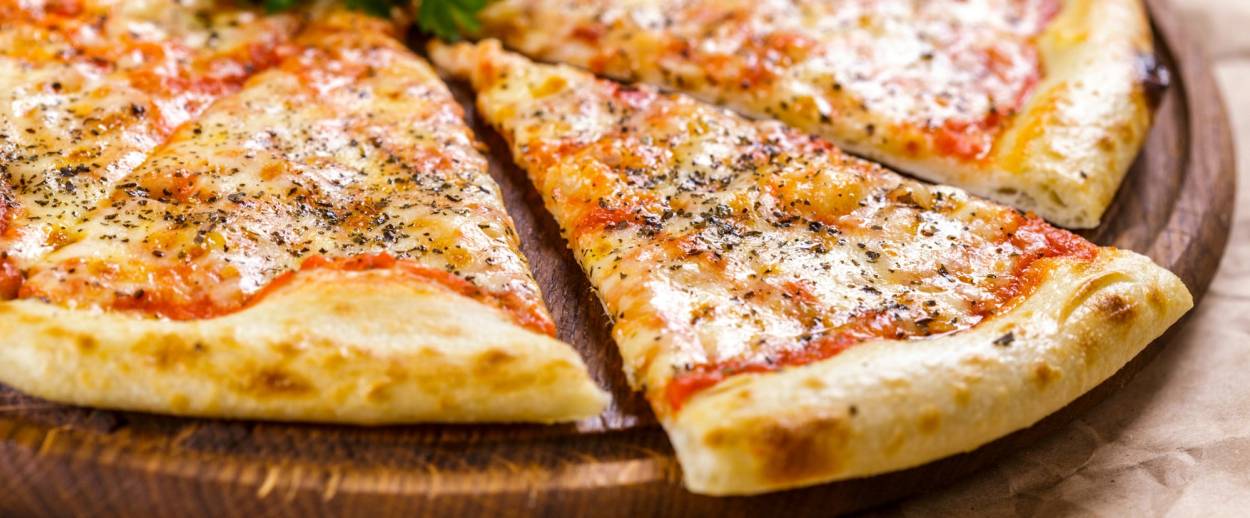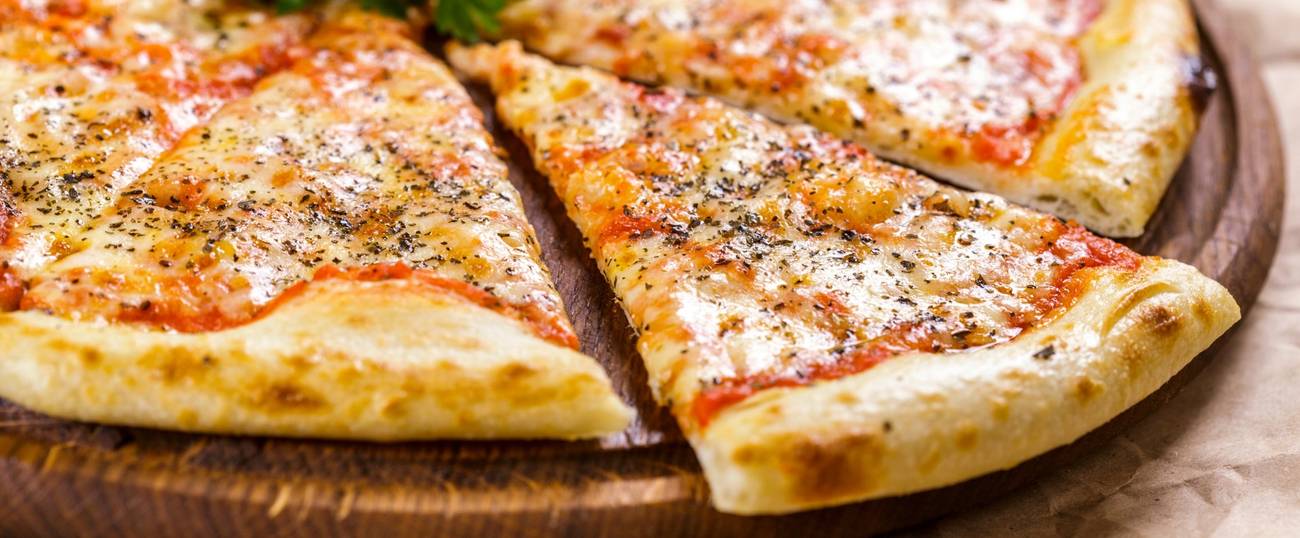Can Kosher Pizza Be Good?
And is rennet to blame if not?




“When I was growing up, the definition of a Jewish neighborhood was a neighborhood that had a kosher bakery, a kosher butcher,” said Rabbi Moshe Elefant, Chief Operating Officer at Orthodox Union Kosher. “Now, the definition of a Jewish neighborhood is that they have a kosher pizza shop.”
Kosher pizza has become a staple of Jewish communities nationwide, whether served to yeshiva students, Brooklyn hipsters, or deep-dish aficionados in Chicago. Yet unlike the kosher hotdog, whose popularity has eclipsed the non-kosher original, kosher pizza has yet to cross into the American mainstream.
If the Orthodox Union’s page on kosher pizza, “Cardboard No More,” is any indication, kosher pizza’s taste may be responsible for its limited appeal. “It took forever for Jews to develop good kosher wine…Give us another 2,000 years on kosher pizza, and I think you’ll be pleased with the results,” wrote one commenter on a SeriousEats thread deploring kosher pizza. The slice I tried at a nondescript Borough Park joint was bland at best, with a disgustingly sweet sauce, clingy cheese, and a thin, hard crust.
“Historically, [kosher pizza] had a bad reputation… because of the materials that were used,” explained Giulio Adriani, a Neapolitan chef and former kosher pizza maker. “[It] was a product made with whatever was available on the market, without a lot of research.”
Although Adriani cited kosher pizza dough as the problem, Rabbi Elefant pointed out that kosher cheese is the greater challenge to produce. Most cheeses, including the grated mozzarella used for New York-style pizza, contain rennet, a coagulating enzyme traditionally found in the lining of calves’ stomachs. Rennet is non-kosher even in trace amounts, so kosher cheesemakers substitute microbial enzymes. These enzymes are derived from plant sources such as fungi, explained Brent Delman, founder of the kosher company The Cheese Guy.
To obtain the certification gevinat yisrael, the baseline for kosher cheese, a mashgiach must supervise the addition of the rennet substitute. To be cholov yisrael, or “in layman’s terms, ‘super kosher,’” Delman said, the mashgiach must be present from the time of milking. Moreover, for both standards, the equipment must be carefully cleaned if previously contaminated by non-kosher ingredients; in some extreme cases, this requires a blowtorch, Delman added.
The rest of the kashrus affecting pizza, such as the ritual of “taking challah” from the dough, are relatively undemanding. Even the question of blessings is easily resolved: “If you’re eating [kosher pizza] as a meal, then you make a hamotzi; if you’re eating it as a snack, then you make a mezonos,” explained Elefant.
Thus, the secret to good kosher pizza lies in the cheese, as Adriani discovered while developing the menu at his restaurant Pizza da Solo. “I went ahead and started producing my own cheese inside the store, my own mozzarella, the way I do in Italy,” he recalled. “That was the game-changer.” Adriani used vinegar to make his mozzarella, a style of cheese known as ‘acid-set.’ This approach gives the cheese a more homemade feel, according to Delman.
Though Pizza da Solo recently closed, it was a favorite of food critic Dani Klein, founder of YeahThatsKosher. “Not only did they make Neapolitan pizza and make it really well… they were making everything from scratch, with fresh basil and top-notch olive oil,” Klein said. “They were going above and beyond.”
Klein admitted that kosher pizza is often superior when it returns to the dish’s Neapolitan roots. “The ingredients you’re getting there are typically more unique, more expensive, which is why not everybody can afford the Neapolitan style pizzas,” he said.
Still, New York and Neapolitan-style pizza “are completely different products, in a sense,” said Klein, who was raised in Brooklyn. “You’re getting different quality, different ingredients, different portions.”
Now that New York City is host to a number of excellent kosher pizzerias, such as Bravo, Basil, Jerusalem Cafe, and Amnon’s, Klein said his critical focus has shifted.
“The people in [the kosher] community aren’t necessarily saying, ‘Why is kosher pizza so bad?’” Klein explained. “The real question that we’re all asking is, Why does every kosher pizza restaurant have a sushi bar?’”
“It’s actually frustrating to kosher consumers that pizza places feel the need to do that. If you want to do sushi, open a sushi place.”
Emma Davis is a former editorial intern at Tablet and has written for NBC News, Today.com, and the Huffington Post Blog.